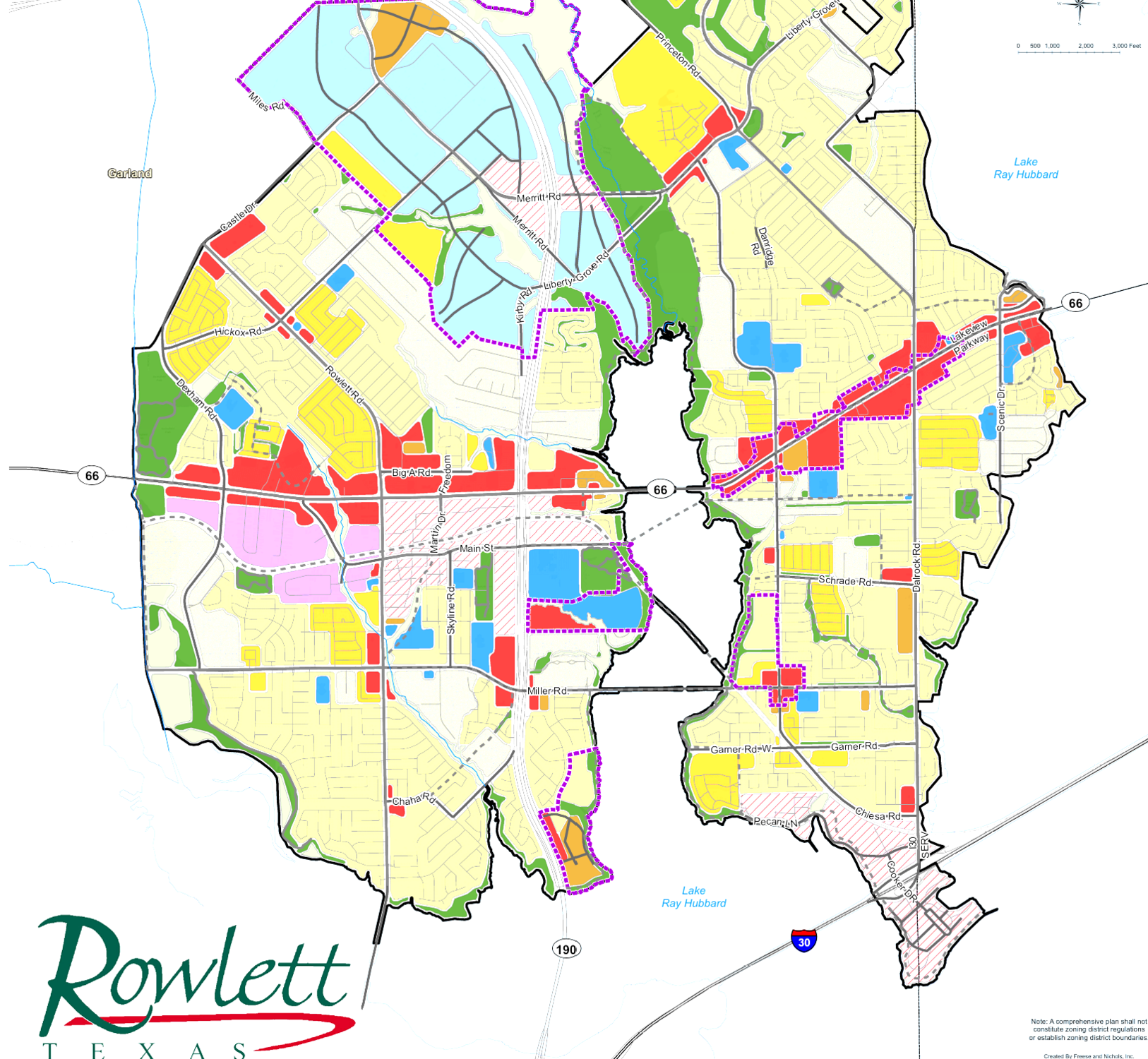
Property Rights: It's a Balancing Act

For our city to grow in a responsible way, shift some of the tax burden off of our homeowners, and provide residents with the amenities and the shopping, dining, and entertainment options they want, we need well-managed commercial/retail and industrial development.
The wrinkle is that our city is approaching a state of buildout, where there is not much raw land left to be developed. Because up until fairly recently Rowlett was a bedroom community, that means new proposed commercial projects are likely to be in areas that abut single family neighborhoods.
We humans don't like change, and we especially don't like changes that disrupt our lives. Those who come out to speak against zoning changes or other land use decisions in or near their neighborhoods are often accused of obstructing progress and practicing NIMBY ("Not In My Back Yard") - but the impact on peaceful communities caused by some types of development is real.
There is a reason state law requires that adjacent property owners be notified and that public hearings be held when we're considering approving a potentially impactful development. The state recognizes that those property owners have vested financial and emotional interests in matters that affect their home value, quality of life, and neighborhood ambiance.
When a request comes to the council, members have to weigh the wishes of the owner of the applicant property, the owners of the nearby properties, and the good of the city as a whole. These cases are often seen as developer vs. homeowners, but frequently the owner of the applicant property is a Rowlett resident, too.
Some of those landowners have inherited their large piece of land or bought it decades ago and have lived here for many years, but are now in a situation where they need to sell, and they're unable to find buyers unless they can get it rezoned, either for some type of commercial use or for higher density housing than that of the neighborhoods close by.
I am generally in favor of allowing property owners to do what they want with the land that they paid for, pay to maintain, and pay taxes on - so long as that isn't hurting anyone else. The definition of "hurting someone else" is where it gets sticky. That's subjective, and it's imperative that the council's decisions be objective.
When it comes time to make a decision, we have state laws and city ordinances that strictly control the criteria by which zoning and land use decisions are made. We have a comprehensive plan and a future land use map. We have a set of conditions that need to be met to grant or deny a zoning change, a special use permit, or a warrant (variance).
That's as it should be. The council is tasked with representing the citizens and their wishes, but also with complying with local, state, and federal statutory and case law. In land use cases, the mayor has no authority beyond that of any councilmember.
The mayor also has the same obligation as other councilmembers to study the supporting documentation, become acquainted with the property at issue, to listen to the presentation(s) made by the city staff and/or applicant(s), to ask pertinent questions, to know the laws relevant to the case (or seek the legal advice of the city attorney), and finally to vote in accordance with those laws in a way that s/he believes is in the best interest of the city.
As mayor, I will consider every agenda item pertaining to land use on a case-by-case basis, taking that authority and that obligation seriously. I will do my best to balance community input, staff analysis, and the city's goals and policies to make fair decisions that align with the city's comprehensive plan and the long-term vision for the community on which it is based.
